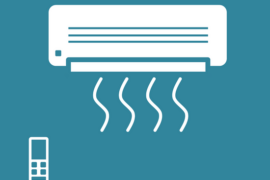Obstructive sleep apnea can be a serious sleep disorder if not diagnosed. It causes your breathing to stop and start repeatedly during sleep, which can cause you to feel tired, rundown, and fatigued in day to day life. If left undiagnosed and untreated, sleep apnea has been linked to memory loss, heart disease, and high blood pressure.
If you are one of the 18 million adults in the U.S living with obstructive sleep apnea, here are 5 things that can make it worse.
1. Weight Gain
The main factor that worsens symptoms of sleep apnea is obesity. Excess pounds can bulk up tissues around and in the airway, making it more at risk to collapse as the muscles relax when you’re going to sleep. While those at a healthy weight can develop this disorder, more than 50% of those who have the condition are overweight. There are several things you can do to keep your weight at a healthy level, such as regular exercise and following a balanced diet.
2. Alcohol
If you drink alcohol, this increases muscle relaxation, including those of the throat. Alcohol will make your airways more vulnerable to obstruction, so it’s recommended that you lower your alcohol intake or give it up altogether. While many people like to have a glass of wine or a pint of beer after a long and busy day, if you live with obstructive sleep apnea, you may find your symptoms decrease once you stop drinking alcohol.
3. Sleep Position
When going to bed, you may not realize the position you sleep in could be having a negative impact on your obstructive sleep apnea. Sleeping on your back will make symptoms worse and cause your tongue to relax back further. It’s vital that you get a good night’s sleep for your mental and physical health, so you may want to purchase a CPAP machine from Medguru which can help those with obstructive sleep apnea.
4. Smoking
We’re all aware of the dangers of smoking for our health and wellbeing. Smoking can increase your risk of developing this common sleep disorder, alongside breathing problems for individuals who suffer from it. Tobacco is a direct irritant to the upper airway, soft palate, and throat, which can cause the area to swell over time. Smoking is also a trigger for symptoms of asthma, which causes a person’s airway to inflame and narrow. Giving up smoking is one of the best things you can do if you have obstructive sleep apnea.
5. Medications
If you are taking prescription medication, this can also worsen symptoms of obstructive sleep apnea. For example, if you are taking muscle relaxants, they may cause greater snoring and difficulty with sleep. Painkillers like opioids can make breathing more difficult and cause respiratory suppression. It’s advisable to speak with your doctor if you have sleep apnea, as they will be able to provide more information on what types of medication are best avoided.
All the factors listed above can exacerbate sleep apnea and put you at a higher risk of developing heart disease amongst other serious health conditions.
*collaborative post


































